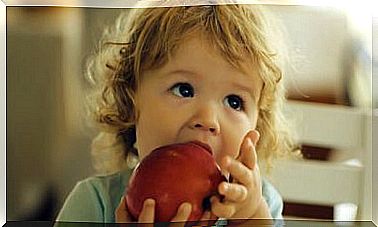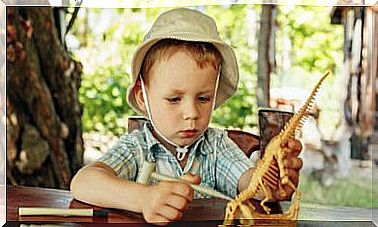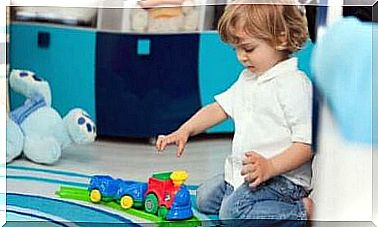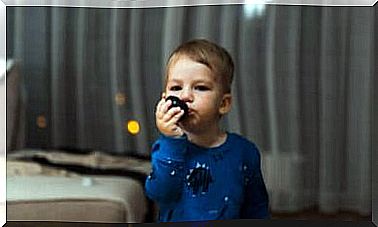Educating Children In Humility
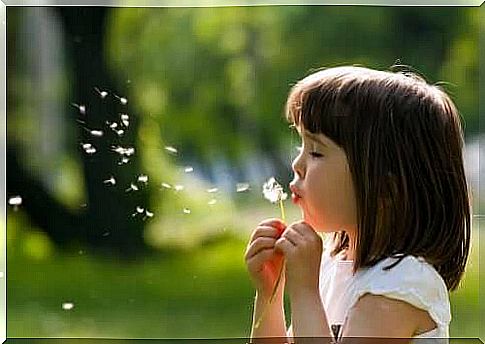
Raising a child is not just about providing them with food, security and affection. As parents, it is also our responsibility to transmit values and guide them so that they grow with human quality. Educating the little ones in humility will provide them with a happier life and better social relationships.
Proud and arrogant people spend their energy feeling and trying to appear superior to the rest. This is incompatible with a harmonious existence and generally tends to drive others away from us. On the contrary, a humble person is someone we all want to be around. They are tolerant individuals, compassionate and able to learn from their mistakes.
So if you want your child to belong to the second group, you must work on developing humility from his early years. Values that are established in childhood tend to remain and accompany us throughout our lives. Therefore, you are providing him with a gift that he will enjoy forever.
What really is humility?
In order to convey this wonderful and necessary value to our children, it is necessary to clearly understand what it consists of.
Humility is a human virtue that consists in being able to recognize one’s limitations, understanding, therefore, that we are not above anyone else. There are certain behaviors that show humility in a person. Look:
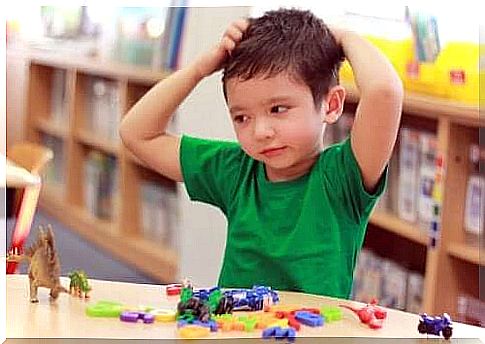
- It assumes its own limits and adopts an attitude of constant learning.
- Understand that we are all human and therefore we all fail. Because of this, she does not devalue anyone, nor does she boast about her achievements.
- Treat life in all its forms with respect and dignity.
- He is able to ask for help when he needs it, and he is able to ask for forgiveness when he has done wrong.
How to explain humility to children?
The little ones still do not have the cognitive development necessary to understand such an abstract concept from its definition. So the best we can do is to integrate it into daily life. Thus, observing concrete behaviors, it will be easier for children to internalize this value.
Educating in humility through everyday examples
- Failing an exam or not passing the selection tests to join a team are times when the child will be aware of their limitations. We must normalize the idea that no one is perfect, that not everyone is good at the same things and that we can work to improve. We shouldn’t focus on overcoming the colleague next door, but rather on overcoming ourselves.
- When the situation occurs inversely, we must help the child to be compassionate towards those who have not had as good results as he has. If, in a football match, your team wins, we must show that it is not appropriate to make fun, but to adopt a sporty and friendly attitude.
- If at school she meets children from other countries, children with functional diversity or children who, in any case, go out of the ordinary, we should take the opportunity to teach them about tolerance and diversity. We cannot miss the opportunity to convey that all human beings deserve to be treated with respect and dignity and, furthermore, that no one is superior to others.

- We must take our little ones to nature so that they can value and develop respect for all living beings. We must teach them to keep natural spaces clean and to take care of life in all its forms: from flowers to insects to elephants. Their lives are just as valuable.
- We must set an example for children, recognizing our own mistakes and apologizing when we fail. In this way, they will take this act as natural and will incorporate it into their repertoire of behaviors. Likewise, we must remind them that asking for help is appropriate and beneficial.
Why educate in humility?
Contrary to what many people think, humility is not synonymous with submission or weakness. A humble child is able to appreciate his strengths without bragging about them and to recognize his limitations without feeling inferior. That is, she is able to respect others without ever failing to respect herself.
A humble child will be a happy child, who thus will not need to be perfect to know that he is valuable. In the same way that she will not expect perfection from others, she will know how to tolerate frustration and adapt to change, learning from adversity. She will enjoy healthy and sincere social relationships but, above all, she will have a healthy relationship with herself, loving and accepting herself as she is.
